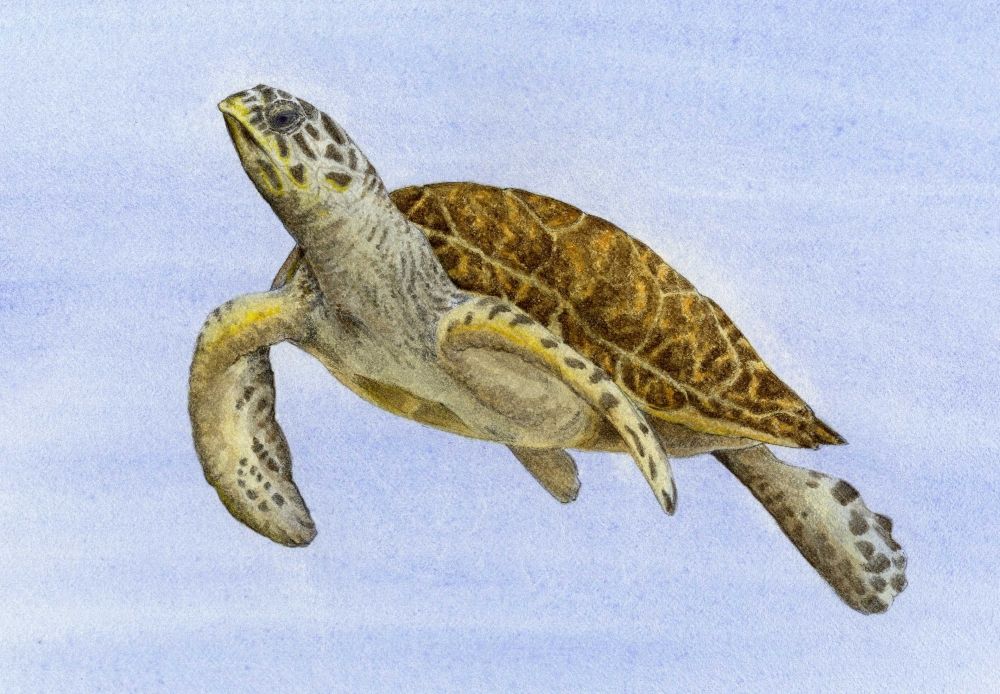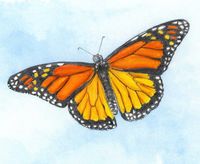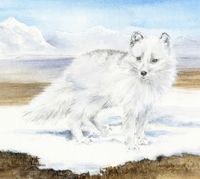
Hawksbill Sea Turtle
Latin name: Eretmochelys Imbricata,Conservsation status: critically endangered (population is decreasing)
One of the smallest sea turtles, the Hawksbill lives 30-50 years and feeds on sponges that are toxic to most other marine animals.
Climate change may affect Hawksbill Turtles in various ways because they live in different habitats at different stages of life: open ocean, beaches, lagoons and coral reefs. Rising sand temperature of nesting beaches produces more females and other abnormalities in baby turtles. Adults live primarily in coral reefs—threatened by rising ocean temperature and acidity. Since ancient times the Hawksbill has been exploited for its shell. They are also threatened from fisheries by-catch, development, and a high sensitivity to oil spills. The population has decreased by an estimated 80% in the last 100 years.
Other animals effected by climate change
 Polar Bear
Polar BearPolar Bears live only in the Arctic. Loss of sea ice has a critically adverse effect on Polar Bears. They hunt from the edge and build snow dens on the ice for resting and raising their cubs. Sea ice decline could open the Arctic to shipping and tourism, further disturbing Arctic habitats. Other threats are oil development and industrial pollution that reaches the Arctic through air and ocean currents.
 Hawksbill Sea Turtle
Hawksbill Sea TurtleClimate change may affect Hawksbill Turtles in various ways because they live in different habitats at different stages of life: open ocean, beaches, lagoons and coral reefs. Rising sand temperature of nesting beaches produces more females and other abnormalities in baby turtles. Adults live primarily in coral reefs—threatened by rising ocean temperature and acidity. Since ancient times the Hawksbill has been exploited for its shell. They are also threatened from fisheries by-catch, development, and a high sensitivity to oil spills. The population has decreased by an estimated 80% in the last 100 years.
 Monarch Butterfly
Monarch ButterflyThe annual North American migration of the Monarch is listed as a "threatened phenomenon." Climate related threats include: drought, storms, changes in precipitation and dependence on temperature to trigger migration and reproduction. The Monarch feeds and lays eggs exclusively on milkweed plants, so it is also highly vulnerable to herbicides and habitat destruction.
 Arctic Fox
Arctic FoxThe Arctic tundra is a region of shrubs, grasses and permanently frozen subsoil. Warming could change the tundra to boreal forest—habitat for the Red Fox. The Red Fox, a predator and a competitor for food, is already beginning to migrate north into the Arctic Fox's territory. Milder tundra weather also causes changes in the population of lemmings and rodents—main food for the Arctic Fox.
